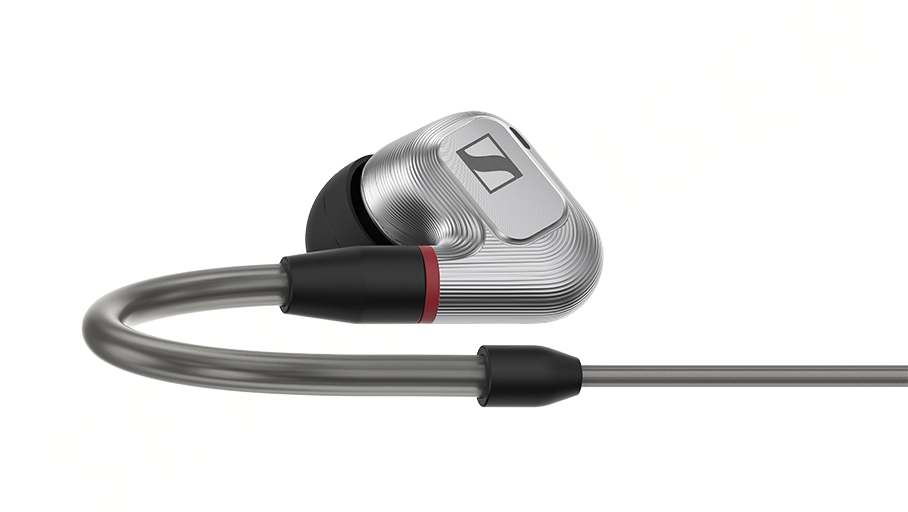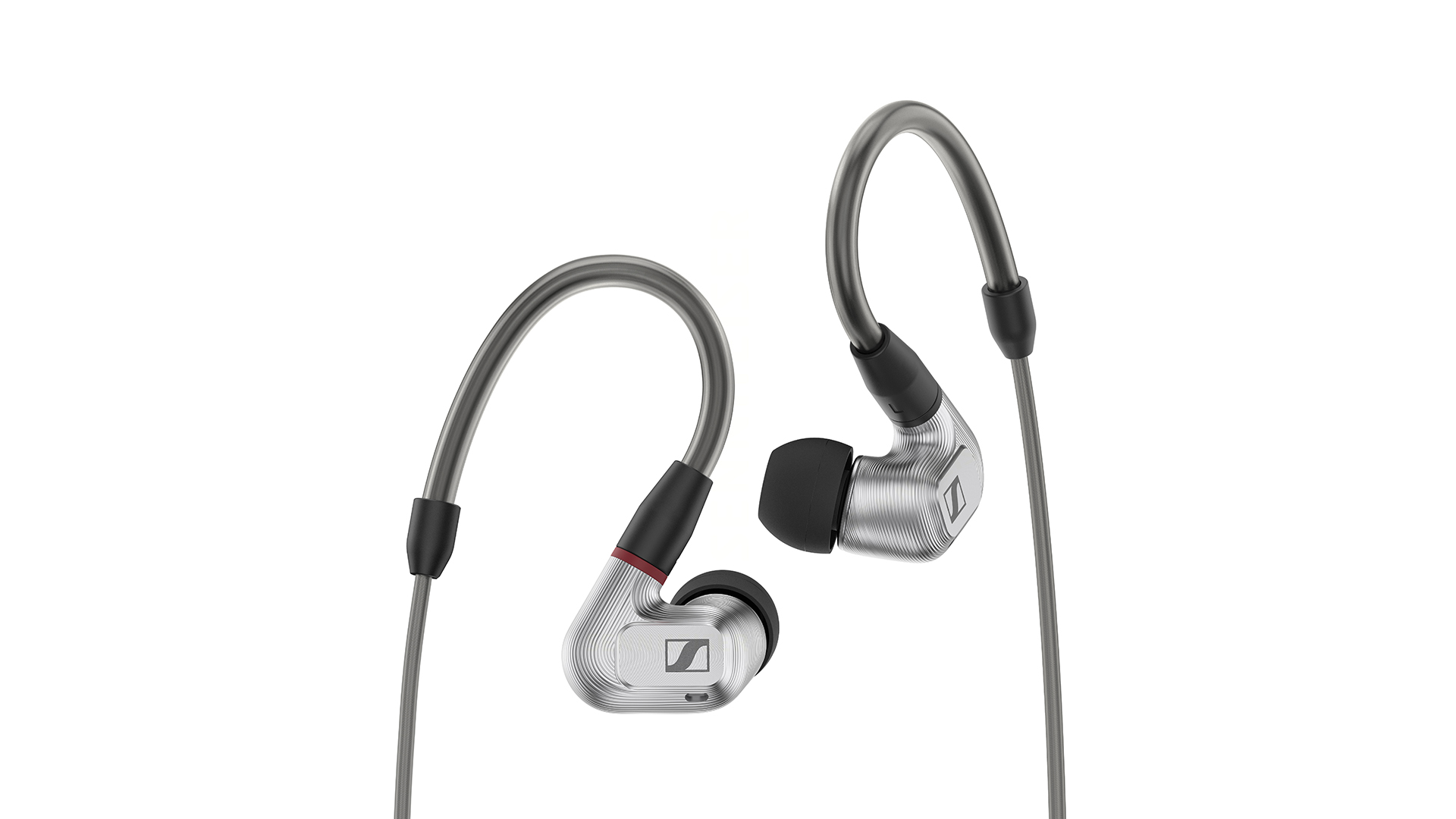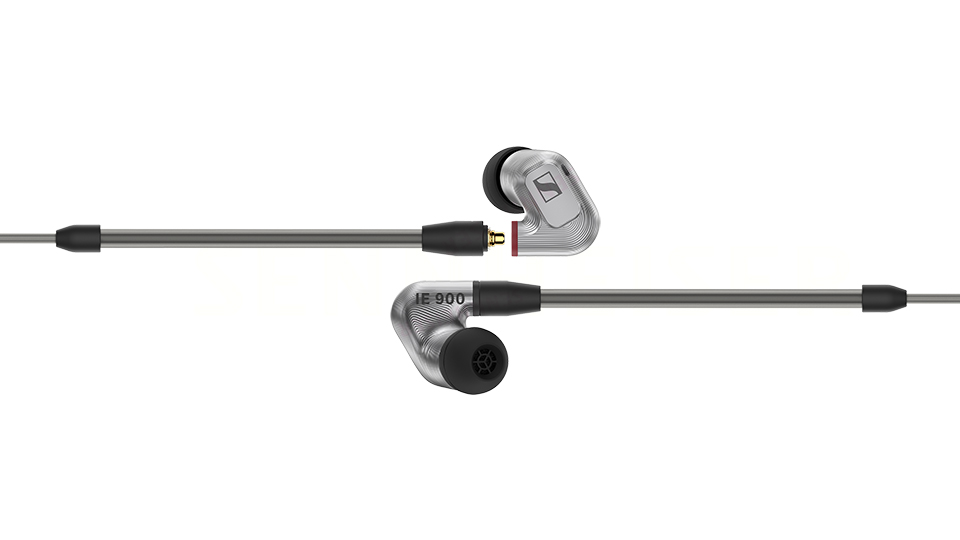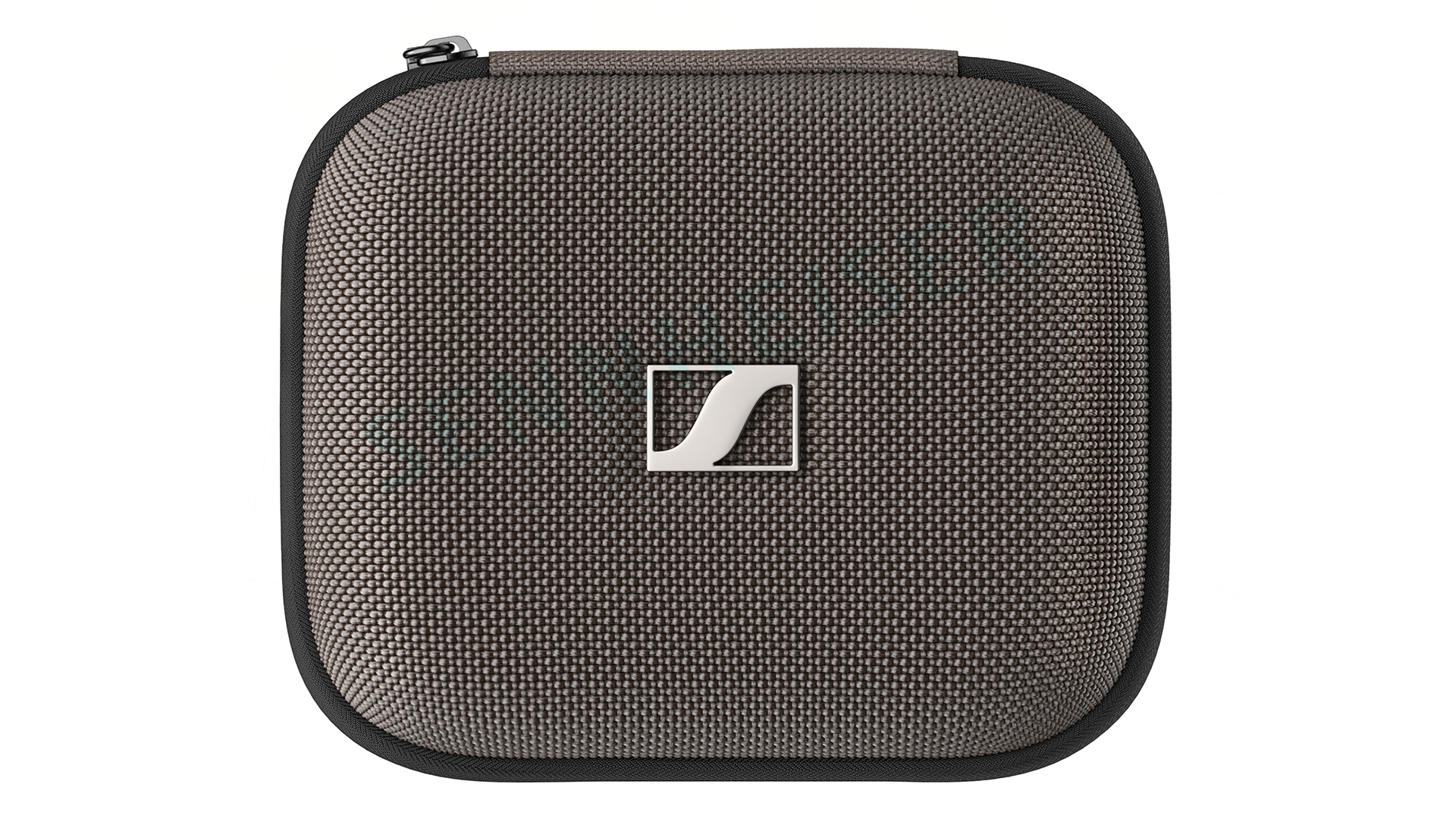What Hi-Fi? Verdict
Sennheiser’s IE 900 combine listenability, insight and comfort, making them one of the front runners at this elevated price
Pros
- +
Detailed, articulate sound
- +
Refined yet entertaining presentation
- +
Clever engineering
Cons
- -
Cable transmits noise
- -
No in-line remote
Why you can trust What Hi-Fi?
Sennheiser’s new IE 900 in-ear headphones are a purist design, engineered with the singular purpose of offering the best sound quality possible at this level. Their technical highlights include a single 7mm drive unit per earbud, an intricately machined aluminium casing, and the use of some clever resonance chambers inside that casing to improve the driver’s frequency response.
New premium wired in-ears are far less common than they used to be, and understandably so. In-ears have always been about portability and ease of use, so the rise of wireless connectivity makes perfect sense for such a product. Add complementary technologies such as noise-cancelling and app control into the equation and the ideal features template for such headphones looks set.
Yet, this template doesn’t put sound quality front and centre. And if that’s paramount to you, then fully wired remains the way to go and, with that, all the flexibility and convenience features go out the window.
Build and Comfort

High-end in-ears invariably suffer from low perceived value. It’s hard for a manufacturer to make something like the IE 900 look and feel as expensive as they are. But Sennheiser has given it a good go.

Type In-ear, wired
Frequency response 5Hz to 48kHz
Impedance 18ohms
Cables 3x 1.2m
Connections 3.5mm, 2.5mm, 4.4mm
Weight 4g (each)
The IE 900 are packaged in a neat box and come with six pairs of ear tips that are split evenly between silicone rubber and memory foam. There are three 1.2m-long cables; one has a standard 3.5mm plug and two are balanced with 2.5mm and 4.4mm ends respectively. Disappointingly, there’s no sign of an in-line remote on any of them.
It’s on the inside where Sennheiser’s work is most apparent. The engineers have chosen to go with a single driver rather than the more fashionable multiple unit approach that many rivals take. The advantages of this simpler approach are improved cohesion and better phase performance. A single unit has no need for a crossover of any sort, so avoids the innate distortion of such a circuit.
Having just one drive unit to cover the entire frequency band (5Hz-48kHz) promises a seamless sound, but it’s also hard to design one that has a suitably even response.
Sennheiser's solution is two-fold. Firstly, the 7mm diaphragm is made of a blend of polymers in a bid for rigidity and low resonance. But not all the resonances can be controlled this way, so three Helmholtz resonator chambers have been machined into the aluminium case structure. These operate in the 6.5-10kHz range and absorb the driver’s excess energy at these frequencies, leaving a much more even balance. Even the tiny port that feeds the driver’s sound into the ears is specially shaped to control the frequency response.
Pairs of drive units are matched during the production process, so the sound from the left and right channels is as consistent as possible. The result should be a more solid and focused stereo soundfield.
These earphones are comfortable in use thanks to careful shaping, a good range of eartips, and the security provided by the cable folding around the ears. At just 4g each, these buds are hardly burdensome. Our only complaint is that the signal cable is prone to transmitting any noise caused by movement – an issue if you want to wear these headphones on the move.
Sound

It’s worth getting past this irritation because the IE 900 sound so good. They’re impressively clear and open sounding, able to dig deep into the production of a recording. All the work with the trio of Helmholtz resonators pays off, with clean and crisp highs that still have plenty in the way of refinement.
Tchaikovsky’s Marché Slave Op.31 is a dramatic classical piece with forceful dynamic swings and a wonderful sense of momentum. These Sennheisers capture the music’s energy superbly. They sound confident and insightful, revealing layers of low-level information and organising it into a structured and cohesive whole.
Tonally, they’re well balanced. The similarly priced Technics EAH-TZ700 manage more in the way of low-end authority and punch, but the IE 900 counter with a more expressive midrange and a greater sense of verve. It’s an entertaining presentation that’s rounded enough that the music has our attention rather than anything the earbuds are doing.
These are highly revealing performers, too, so if there are issues in your source or amplification, you’ll know about it. While it’s possible to plug these Sennheisers straight into anything with a 3.5mm headphone output, they deserve much more than to be used with a phone or laptop.
We strongly suggest using a high-quality outboard DAC, at least the standard of the Chord Mojo. Also use good quality music files of CD-quality or higher, regardless of whether they are downloaded or streamed. Portable music players can also work well, but don’t expect great results if you’re not using something premium. If you really want to hear just how good the Sennheisers can sound, we’d recommend spending at least as much on the player as the headphones.

While the IE 900 are critical of source and amplification quality, they’re happy to play all genres of music. Provided it’s recorded well, these buds will shine regardless. We listen to Michael Kiwanuka’s eponymous album and the Sennheisers sound right at home, delivering the album’s retro vibe with skill.
Rhythms charge along with enthusiasm while Kiwanuka’s distinctive vocals come through with texture and passion. The album’s production isn’t the cleanest, but the Sennheisers still resolve plenty of information and present it in an orderly and enjoyable way.
Over our listening sessions, we switch between the likes of H.E.R, Leonard Cohen and Beethoven, and the IE 900 have no trouble accommodating any musical demands. They always provide plenty of insight and allow us to analyse the recording if we want to, but equally are also happy to just have fun.
Verdict
There’s no denying that the IE 900 are a pricey proposition, but if you have a good enough source and amplification, their build, engineering and sound quality more than justify that hefty outlay.
SCORES
- Sound 5
- Comfort 5
- Build 4
MORE:
Read our guide to the best earbuds
Read our Shure KSE1200 review
Read our Technics EAH-TZ700 review
What Hi-Fi?, founded in 1976, is the world's leading independent guide to buying and owning hi-fi and home entertainment products. Our comprehensive tests help you buy the very best for your money, with our advice sections giving you step-by-step information on how to get even more from your music and movies. Everything is tested by our dedicated team of in-house reviewers in our custom-built test rooms in London, Reading and Bath. Our coveted five-star rating and Awards are recognised all over the world as the ultimate seal of approval, so you can buy with absolute confidence.
-
Moree Spingato Typical What HiFi palaver. The IE600 are just as good, and no need for Chord Mojo. Simple IFI Go Bar with iPhone 15 will bring out the magic just as well.Reply

